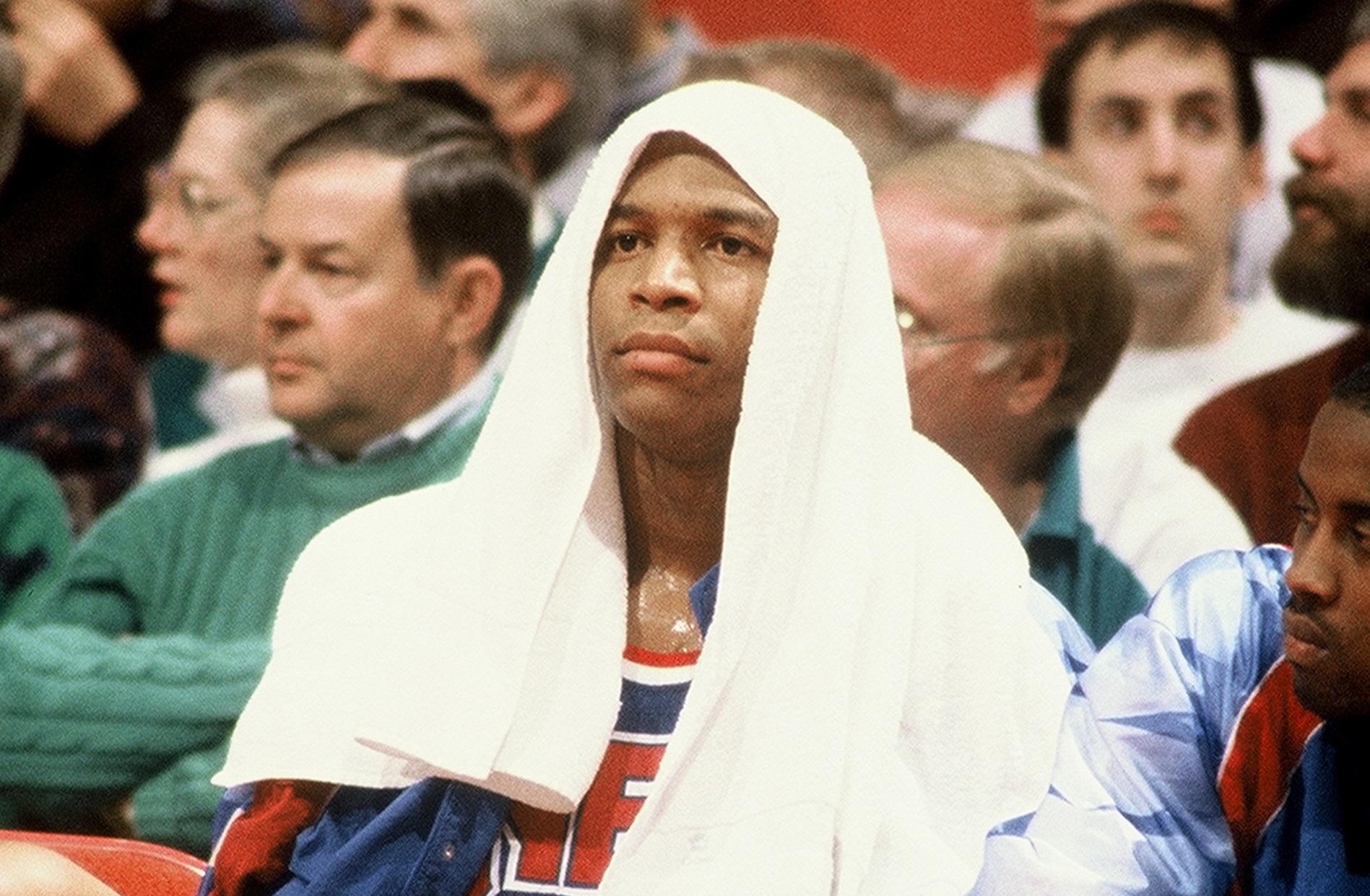NBA
Former No. 1 Draft Pick Derrick Coleman Led the NBA in Arrests

Although he showed an aptitude for scoring and rebounding during a 15-year career, Derrick Coleman’s most prolific statistic was his arrest record. His brushes with the law correlate with the decline in his once-promising NBA career for the New Jersey Nets and three other franchises.
A stellar college career and promising start in the NBA
RELATED: Former NBA All-Star Jayson Williams Went to Prison For Killing His Limo Driver
Derrick Coleman had all the makings of a Naismith Memorial Hall of Fame player coming out of Syracuse University in 1990. Coleman was a four-year starter for Jim Boeheim, totaling 2,143 points (average of 15.0 per game) and 1,537 rebounds (10.7). He helped the Orange into the 1987 NCAA Tournament final as a freshman and the quarterfinals as a junior.
Coleman’s college days ended with the New Jersey Nets selecting the 6-foot-10, 230-pound power forward No. 1 overall in the 1990 NBA draft. He didn’t waste any time making the now-Brooklyn Nets look good for the decision.
Coleman averaged 18.4 points and 10.3 rebounds in 74 games that first season, making him a runaway runner for NBA Rookie of the Year over Lionel Simmons of the Sacramento Kings. He remained a consistent double-double on the stat sheet for four more years with the Nets, putting him in the conversation with Karl Malone and Charles Barkley when discussions turned to the best NBA power forwards.
The unfulfilled promise of Derrick Coleman
RELATED: You Won’t Believe How Much Money Deron Williams Made to Not Play for the Brooklyn Nets
With his great start with the New Jersey Nets and a gold medal at the 1994 World Championships, Derrick Coleman’s career trajectory knew no bounds. But that potential fell victim to reality by his fifth season in New Jersey as injuries hampered his game. Coleman played just 127 games over three seasons following a trade to the Philadelphia 76ers, and there would be just 145 appearances with the Charlotte Hornets over the next three seasons. His production when healthy didn’t match the start of his career.
A damning line in a Sports Illustrated story summed up his career: “Coleman could have been the best power forward ever; instead he played just well enough to ensure his next paycheck.”
The 2001-02 season, in a return to Philadelphia, would be his last as a full-time starter, and he was out of the game by 2005. But being labeled a draft bust by the magazine was hardly justified given his career averages of 16.5 points and 9.3 rebounds.
Derrick Coleman led the NBA in arrests
RELATED: Kyrie Irving Has No Leadership Credibility After His Horrific Celtics Career
Injuries were certainly a factor in Derrick Coleman’s descent from star NBA power forward to journeyman, but he was also guilty of self-inflicted damage, including alcohol abuse, In fact, NBA Crime Library, which tracks police blotters, claims Coleman’s seven arrests while an active player is a record for the league.
Coleman’s arrest record began with an assault charge in 1994 and ended in 2002 with being charged with driving under the influence. In between was one remarkable stretch of four arrests in an 18-month span. The charges ranged from interfering with a police officer at a nightclub to public urination in a restaurant dining area while with Detroit pals Jalen Rose and Thomas “Hit Man” Hearns.
It spoke to immaturity and explained why the last two-thirds of a once-impressive career didn’t fulfill Coleman’s earlier promise.











